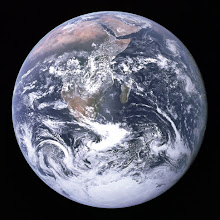Culture, society, history—and how each relates to the resources we consume.

What's on This Site
Keyword Search Here:
Saturday, January 15, 2011
A New Government Document on the US Oil Predicament . . . and a New Set of Inaccuracies?
Previous Posts
-
►
2014
(1)
- ► December 2014 (1)
-
►
2013
(1)
- ► August 2013 (1)
-
►
2012
(4)
- ► August 2012 (1)
- ► April 2012 (1)
- ► March 2012 (1)
- ► January 2012 (1)
-
▼
2011
(38)
- ► December 2011 (1)
- ► November 2011 (1)
- ► October 2011 (4)
- ► August 2011 (5)
- ► April 2011 (2)
- ► March 2011 (1)
- ► February 2011 (7)
-
►
2009
(4)
- ► December 2009 (1)
- ► April 2009 (1)
- ► February 2009 (1)
- ► January 2009 (1)
-
►
2008
(6)
- ► December 2008 (4)
- ► November 2008 (1)
- ► October 2008 (1)
Why design a site on "Culture and the Political-Economy of Energy Resources?"
Overview: A New Way for a New Era
The overall purpose of this site is to function as a clearinghouse of useful information, as well as an incubator of provocative and innovative ideas. Emphasis will be on the social implications of our heavy reliance on petroleum and related products. All of this is being discussed—either implicitly or explicitly—in the overarching / overlapping context(s) of Peak Oil and Climate Change.
The site contains a collection of useful links, original articles, re-posts from other distinguished organizations, individual writers and bloggers.
I hope that you will find this site both useful and enjoyable (and I welcome your feedback). It’s not easy to make something so serious so fun. This comes about as a result of reviewing a lot of material in the past which, although very informative, could also be quite depressing and downright discouraging at times. So, I’ve decided to take a slightly different path, in bringing you information that you will possibly find important or helpful.
Finally, know that you are not alone in all of this—far from it. These are issues we are all facing, in one way or another. So let’s find our courage and face them together.

Aerial View of Downtown Los Angeles. This city typifies the triumph of the petroleum-based industrial system of the 20th century.
External Blog and RSS Links
-
14 years ago
-
1 week ago
-
12 hours ago
-
10 hours ago
-
8 years ago
-
5 years ago
-
8 years ago
-
-
-
-
1 hour ago
-
-
11 hours ago
-
9 years ago
-
-
9 years ago
-
1 week ago
-
13 years ago
-
9 years ago
-
10 years ago
-
-
4 months ago
-
-
11 years ago
-
-
20 hours ago
-
-
-
1 year ago
-
-
-
11 years ago
-
13 years ago
-
12 years ago
-
1 day ago
-
-
4 years ago
-
3 years ago
-
4 years ago
-
-
9 years ago
-
18 hours ago
-
-
11 years ago
-
9 years ago
-
-
-
1 week ago
-
-
-
-
3 weeks ago
-
12 years ago
-
13 years ago
-
19 hours ago
-
1 year ago
-
3 hours ago
-
1 day ago
-
13 hours ago
-
7 years ago
-
-
9 years ago
-
-
-
-
8 years ago
-
-
2 months ago
"In the beginning is energy, all else flows therefrom." -- Cheikh Anta Diop (1974)

About Me

- Dr. Blaine D. Pope:
- A college professor and independent management consultant, focusing on general program design and administration, sustainable development, and the political-economy of energy and the environment. Faculty member at Goddard College (Plainfield, VT). Previously worked at the following academic institutions: Sociology and Anthropology Department, University of Redlands (Redlands, CA); Media and Social Change Program, jointly taught between the School of Psychology at Fielding Graduate University (Santa Barbara, CA) and the University of California at Los Angeles Extension (UCLAx) Program; Research Assistant Professor, Center for Sustainable Cities at the University of Southern California (Los Angeles, CA); Global Studies Program, University of California at Santa Barbara (UCSB); MPA Program in Environmental Science and Policy, The Earth Institute and the School of International and Public Affairs (SIPA) at Columbia University (New York, NY); and, Swahili Language Program, Council on African Studies, Yale University (New Haven, CT). -- Additional working experience in emergency relief and development in 10 countries in Africa and the Middle East.




No comments:
Post a Comment